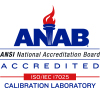 Posted on
Posted on

Temperature and humidity monitoring play a major role in ensuring safety, quality, and potency in the pharmaceutical processing chain. However, an aspect that is sometimes understated is the importance of continued monitoring during transport and delivery.
Regardless of the means of transportation, Annex 9 of the WHO Technical Report Series requires time and temperature monitoring throughout transit. Although storage conditions vary from product to product, the common goal is to protect them from degradation, which can occur at both high and low temperatures.
Transportation Profiling
Before a product is shipped, extensive studies are conducted to determine the most suitable method(s) of transportation. This includes looking at the weather forecast, as well as conducting laboratory and field tests to determine the most suitable approach.
Research and testing allow pharmaceutical companies to identify issues and take the necessary precautions to ensure temperature sensitive products remain safe and compliant.
Temperature Monitoring
WHO requires temperature monitoring devices for all temperature-controlled vehicles to document transit temperatures for every internal and external shipment. The devices must comply with the following minimum requirements:
• Accuracy of ± 0.5 °C.
• Calibrated against a certified, traceable reference standard at least once a year.
• Ability to be placed to monitor worst-case temperatures within the storage.
• Ability to be positioned so as to monitor worst-case positions.
• Provide a temperature record with a minimum recording frequency of six times per hour for each device.
• Provide documentation which can be stored and accessed.
Humidity Monitoring
WHO prefers, but does not require, humidity monitoring devices for temperature-controlled vehicles. The devices should comply with the following minimum requirements:
• Accuracy of ± 5% RH.
• Calibrated against a certified, traceable reference standard at least once a year.
• Ability to be placed to monitor worst-case humidity levels within storage zone.
• Ability to be positioned to be minimally affected by transient events, such as door opening.
• Provide a humidity record with a minimum recording frequency of six times per hour for each device.
• Provide documentation which can be stored and accessed.
Data loggers provide a turn-key solution for ensuring compliance, quality, and ultimately public health. Applying data loggers during testing can provide a complete environmental profile to help identify inconsistencies that should be addressed. Once safeguards are implemented, data loggers can be used again to verify proper conditions enforced and to ensure the environment is maintained throughout transportation.
To learn more about the benefits of data loggers for monitoring pharmaceuticals during transit, call us at (603) 456-2011 or email [email protected].






